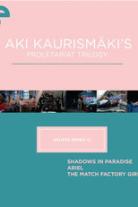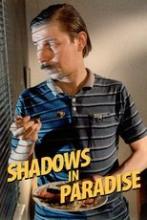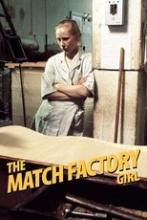
Aki Kaurismäki's Proletariat Trilogy
The poignant, deadpan films of Aki Kaurismäki are pitched somewhere in the wintry nether lands between comedy and tragedy. And rarely in his body of work has the line separating those genres seemed thinner than in what is often identified as his "Proletariat Trilogy," Shadows in Paradise, Ariel, and The Match Factory Girl. In these three films, something like social-realist farces, Kaurismäki surveys the working-class outcasts of his native Finland with detached yet disarming amusement. Featuring commanding, off-key visual compositions and delightfully dour performances, the films in this triptych exemplify the talents of a unique and highly influential film artist.
Shadows in Paradise (1986)
17 October, 1986
Nikander, a rubbish collector and would-be entrepreneur, finds his plans for success dashed when his business associate dies. One evening, he meets Ilona, a down-on-her-luck cashier, in a local supermarket. Falteringly, a bond begins to develop between them.
The Match Factory Girl (1990)
12 January, 1990
Iris is a shy and dowdy young woman stuck in a dead-end job at a match factory, who dreams of finding love at the local dancehall. Finding herself pregnant after a one-night stand and abandoned by the father, Iris finally decides the time has come to get even and she begins to plot her revenge.
Ariel (1988)
21 October, 1988
A Finnish man goes to the city to find a job after the mine where he worked is closed and his father commits suicide.
Fallen Leaves (2023)
14 September, 2023
In modern-day Helsinki, two lonely souls in search of love meet by chance in a karaoke bar. However, their path to happiness is beset by obstacles – from lost phone numbers to mistaken addresses, alcoholism, and a charming stray dog.




